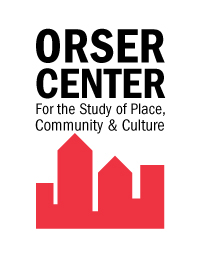Bmore Historic 2020 will take place virtually on Friday, September 18. Register here!
What do we do at Bmore Historic?
Bmore Historic 2020 will be structured differently than previous yeats because we are holding the unconference virtually. Past, in-person unconferences have been structured around four session blocks: two in the morning and two in the afternoon. We usually have between four to six sessions in each of the time blocks for a total of twenty sessions throughout the day.
Here is our 2020 schedule:
- 9:00: Introduction to Bmore Historic 2020
- 9:05: Zoom Tips
- 9:10: Ice Breaker
- 9:20-10:05: Session 1: Nobody Wants to Go to Your Zoom Thing Anymore: Engaging Audiences in the Era of Coronavirus
- 5 minute break
- 10:10-11:00: Session 2: Ethics in Archiving
- 5 minute break
- 11:05-11:50: Session 3: Confederate Memorials and Columbus Monuments: What’s To Be Done?
- 10 min break: Grab your lunch!
- 12:00 -12:30: Lightning Rounds (Sign up here!)
- 12:30-1:30: Wrap Up Session and Networking
The Oral History Association is proud to announce the release of its new suite of remote interviewing resources. These resources are a product of the COVID-19 pandemic and the requirement to cease face-to-face interviewing for the health of both narrator and interviewer. By March 2020, many of us found ourselves sheltering in place, trying to learn how to do our jobs from home. For those working in oral history, remote interviewing became a pathway to continue essential oral history work. This guide is meant to be a resource to practitioners as they work through the numerous questions that arise with this method.
Though the current environment requires us to set aside face-to-face interviewing, these resources are intended to inform our practice beyond the international crisis created by COVID-19. There are many reasons for in-person interviewing to be our default, but those who developed this guide feel that remote interviewing should have a place in our practice even when it is safe to resume meeting face to face.
The Oral History Association’s Remote Interviewing Resources Task Force developed these materials, including a decision tree, accompanying narrative, case studies, and recording platform documents. Neither the decision tree nor the case studies are intended to cover all available platforms; we have tried to include information on platforms that are currently seeing the most use in the profession. We will add more case studies and information on additional platforms over time. Further, as technology around remote interviewing develops and evolves, we will do our best to keep this guide up to date.
Task Force Members included Jen Cramer, Natalie Fousekis, Andy Kolovos, Rachel Mears, Sarah Milligan, Steven Sielaff, and Amy Starecheski, with chair Allison Tracy-Taylor. We relied on colleagues and in some instances our own programs to supply case studies, and we thank everyone who contributed for their time and expertise.
You can find the resources here: https://www.oralhistory.org/remote-interviewing-resources/





